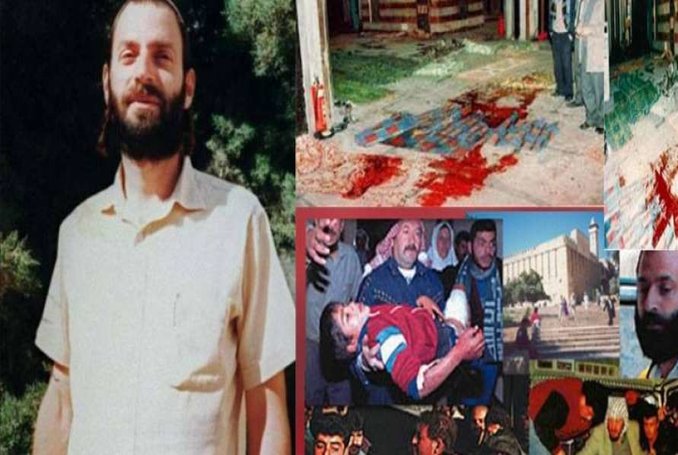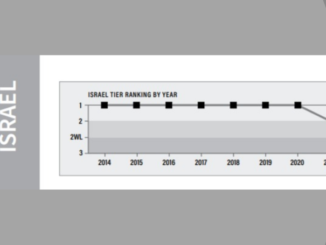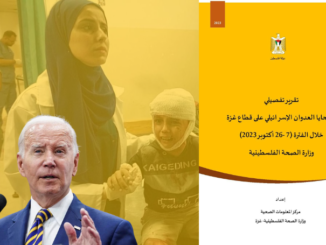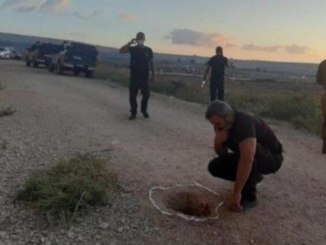
The occupied Palestinian city of Hebron (Al-Khalil) marked 24 years since the Ibrahimi mosque massacre took place, when an Israeli settler opened fire at Muslims observing the dawn prayers on a Ramadan morning, killing 29 worshipers and injuring 150 others before he was caught and killed by the crowds.
The settler, an American-Israeli physician identified as Barouch Goldstein, who resided in the ultra-fanatic Kiryat Arba settlement in Hebron, walked into the mosque as a large number of Muslim Ramadan worshipers, mainly elderly, were praying and opened fire at random from his Israeli army-issued machine gun leading to the large number of deaths and injuries.
#On_this_day of 1994 ..
The Israeli criminal Baruch Goldstein committed the massacre of the Ibrahimi Mosque in Hebron February 25, 1994 ,he shot Palestinians worshipers in the mosque while performing Friday prayers.29 worshipers were martyred and 150 oth… pic.twitter.com/Fxp7zZ8Ewv— #FreePalestine ?? (@Taghreeba) February 25, 2018
To make matters worse, Israeli soldiers, who were in the vicinity of the mosque, closed the doors to the mosque and prevented the worshipers from running for their lives. They also prevented people from outside to enter it to help in evacuating the dead and wounded.
Residents who wanted to reach the mosque, and those inside, fought with the soldiers, leaving an additional number dead and injured. Later, related violence raised the number of Palestinians killed on that day to 50, in Hebron alone, and to 60, adding those killed in confrontations that broke out elsewhere in the West Bank, against Israeli occupation forces.
#Israel forces
attacking a peaceful demonstration in the 24th anniversary of Al Ibrahimi mosque massacre in #Hebron. #IsraelCrimes #IsraelNaked #BDSOurWeapon #BDS pic.twitter.com/ssaEihce39
— Dr. Basem Naim (@basemn63) February 17, 2018
Immediately following the massacre, Israel decided to punish the victims by closing down the old town of Hebron, where the Ibrahimi mosque is located, for six months.
An all-Israeli committee was formed to probe the massacre, instead of punishing the settlers, to divide the mosque between Muslims and Jews, and to close down several commercial streets, most famously Shuhada Street, which remains closed for Palestinians until today.
Army checkpoints were also set up to restrict the movement of Palestinians, while Israeli settlers continued to move freely and without any restrictions.
#Video Israeli occupation forces prevent the students and the teachers of “ Cordoba School “ from reaching their school through the military checkpoint in Shuhada street #Hebron. pic.twitter.com/GuZrRhefGN
— Days of Palestine (@DaysofPalestine) February 8, 2018
The new ‘facts on the ground’ created after the massacre to punish the victims are still in place until today.
(IMEMC, PC, Social Media)








The author might have added that the mass murderer, Goldstein, is regarded by the Zios as a hero and martyr. His grave has become a place of pilgrimage for them. They admire him!